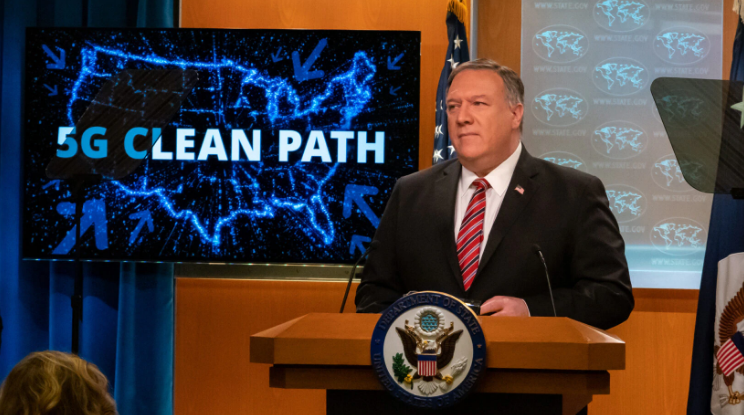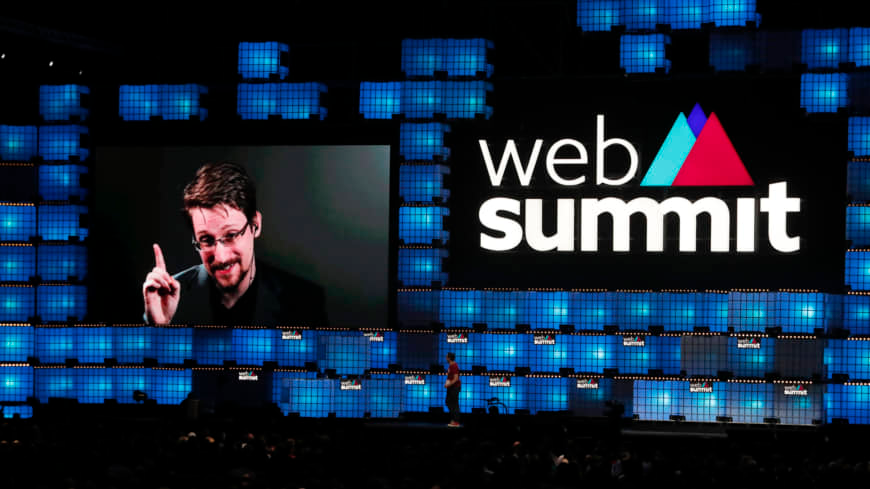
U.S. Secretary of State Mike Pompeo speaks during a news conference at the State Department, Washington, D.C., U.S., April 29, 2020. /AP
U.S. Secretary of State Mike Pompeo speaks during a news conference at the State Department, Washington, D.C., U.S., April 29, 2020. /AP
Editor's note: Wamika Kapur is an Indian PhD scholar of international relations at South Korea's Yonsei University. The article reflects the author's opinions and not necessarily the views of CGTN.
The Trump administration recently ordered the closure of China's consulate in Houston, alleging that it was a hot spot of Chinese spying, attempts to steal valuable medical research, and infiltrating the oil and gas industries. While the talking points of attempts made by the administration to accuse China of intellectual property theft and illegal data mining remain the same, there is a new descriptor in play "Clean Countries" – nations free of untrustworthy 5G vendors.
U.S. Secretary of State Michael Pompeo in his speech entitled "Communist China and the Free World's Future" urged countries to "become Clean Countries so that their citizen's private information does not end up in the hands of the Chinese Communist Party (CPC)." America's attempts at painting China negatively are xenophobic, their tech-lash specifically targets China, and ironically, the U.S. has been at the center of data privacy concerns globally for years. The bigger question for America when attempting to impose standards on the world is, "Is America a Clean Country?"
America has been attempting to form Clean Networks, a coalition of like-minded countries and companies to secure their data from malign actors by establishing Digital Trust Standards. The standards are based on the Prague Proposals which outline important considerations while evaluating 5G vendors and are neutral in their language, however, when America talks about the 5G Clean Path it specifically targets the CPC and Chinese companies like Huawei and ZTE.
To a casual reader, this might suggest that Chinese companies have been caught red-handed stealing data. However, no evidence has been found in over 15 years of service of any such illegal activity or backdoor. Further, isolating and targeting a country America is in competition with reeks of bigger political agendas has been well established that the China-bashing campaign attempts to distract from domestic issues.
America has often cited like-minded countries when attempting to set standards. However, two recent rulings would suggest the trust isn't mutual. On human rights, a federal Canadian judge ruled the asylum treaty with the U.S. as unconstitutional stating that the U.S. is not a "safe country" because asylum seekers are "immediately and automatically imprisoned" under inhumane conditions.
On data privacy, the European Court of Justice recently struck down a key agreement concerning data privacy between the U.S and the European Union. The Court stated that the EU-U.S. Privacy Shield fails to protect Europeans' data privacy rights as they do not meet the minimum safeguards.
The principal flaws lay not so much with companies' practices as with the U.S. government which can spy on people's data. The ruling will have an impact on the 7.1 trillion U.S. dollars economic relationship unless the U.S. changes its laws. These cases highlight that America's own data protection and human rights record is suspect and it should not be taking the moral highground while targeting countries.
The ruling is often dubbed the "Schrems II" after Max Schrems, an Austrian activist who in 2013 first complained about the handling of his Facebook data. The complaint came after former U.S. National Security Agency contractor Edward Snowden revealed that the American government was implicit in spying on people's data and communications. Facebook gave the U.S. security agencies access to personal data.

Former U.S. National Security Agency contractor Edward Snowden addresses attendees through video link at the Web Summit technology conference in Lisbon, November 4, 2019. /AP
Former U.S. National Security Agency contractor Edward Snowden addresses attendees through video link at the Web Summit technology conference in Lisbon, November 4, 2019. /AP
The same accusations America is today making about Huawei and the CPC. The difference lies in the fact that Snowden revelations proved American involvement while the administration is yet to present any proof against Huawei.
America's attitude would belie its history of data concerns with companies such as Facebook and Google. However, reveals such as the PRISM program, Apple and Cisco's admissions of security loopholes and backdoors in their equipment, and use of data by Cambridge Analytica for political ends have no parallels in China. Yet, America continues lobbying allies to block mobile carriers using Huawei's equipment in 5G networks the real costs of which will be paid by their own citizens.
5G, an area of technology where the U.S. is completely absent, offers trusted vendors that America claims are "Clean Telcos" including Ericsson and Nokia. Just over half a year ago, Ericsson agreed to pay the 1 billion U.S. dollars to resolve criminal allegations of bribery by the U.S. Department of Justice.
Ericsson "admitted to a years-long campaign of corruption in five countries to solidify its grip on telecommunications business." Nokia has built a reputation for inconsistent performance and questionable product quality and has also gone through a period of internal struggle with its chief executive and chairman leaving over their performance.
The scheme is clear, America is not a Clean Country and uses dirty tricks to build distrust between China and the world. Pompeo's speech mentions former U.S. President Richard Nixon 25 times while destroying his legacy of building a trusting relationship between China and America. It emphasizes America's need to maintain global hegemony and incapacity to accept a flourishing peer.
(If you want to contribute and have specific expertise, please contact us at opinions@cgtn.com.)